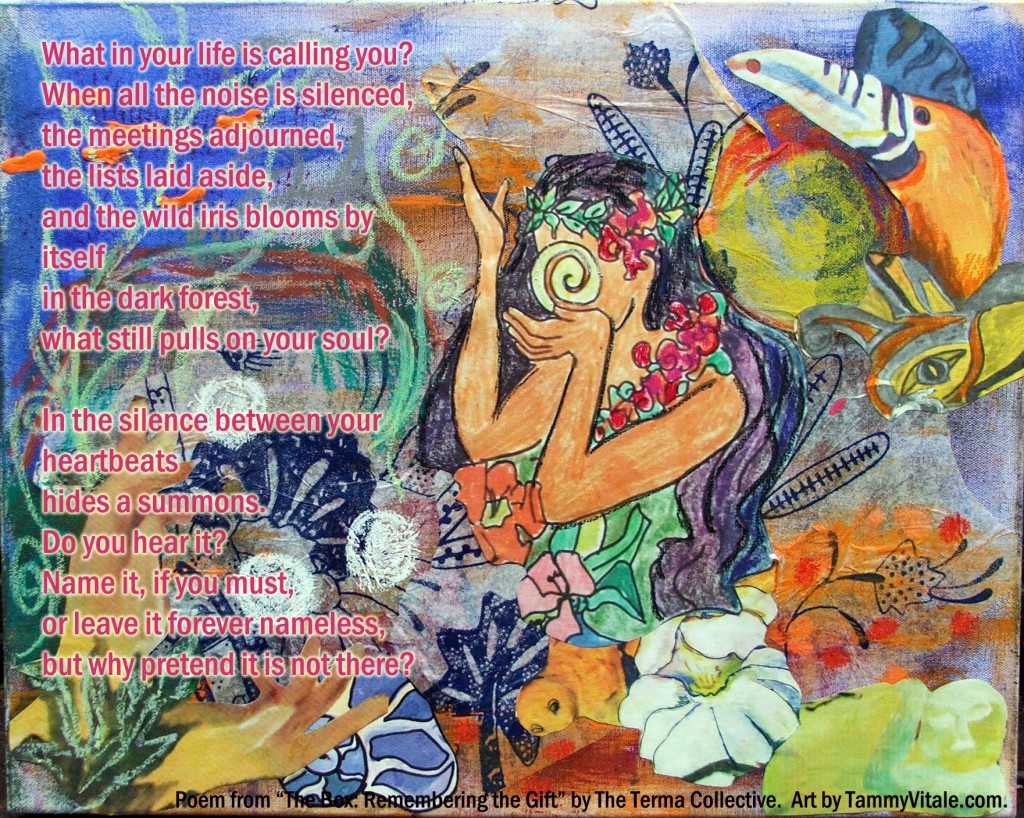
We need to challenge what we take for granted about our abilities and the abilities of other people. This isn’t as easy as one might imagine. Part of the problem with identifying the things we take for granted is that we don’t know what they are because we take them for granted in the first place. They become basic assumptions that we don’t question , part of the fabric of our logic. We don’t question them because we see them as fundamental, as an integral part of our lives. like air. or gravity. or Oprah. Ken Robinson
Last week’s no-cost retreat practice was so popular, I thought I’d share another with you this week!
Shifting Your Point of View
WikiAnswers.com says:
A point of view shift is when the narrator of the story changes positions or becomes non-existent. Consider a shift from first to third person. Instead of saying “I” the narrator will say “He.” Point of view is often consistent in novels, however, it is not very difficult or uncommon to change point of views. Sometimes the author will change the point of view when the character has a flash back. Sometimes the author will change the point of view in order to focus on an event that does not directly involve the main character(s). It can be a powerful literary tool.
It is also a powerful self-learning tool!
Write a short autobiography of your life using “I” – then distance yourself by using pronouns: “she” for yourself and any other major female players, “he” for major male players, “they” for community/peer influencers outside of you, and “we” for any group that you were a part of. Does it change the way you see your story? How? Now, rewrite your story again using “I” and proper names.
Questions to Aid Your Shift
If you could change the story, what would you do?
Who wrote the story you are currently claiming as yours? Did you write the whole thing or are you using input from your parents/schooling/community/friends?
Do you know the story that is fashioning your life?
Do you believe that story that shapes your day?
How would your life be different if you decided to rewrite your story?
If you don’t do something perfectly, do you feel shame? How would practicing imperfection change your view of the world?
Do you honor your own intuition, your own beliefs and your own longings?
Another word for “story”, here, might be paradigm. A paradigm is actually a set of filers. For instance, a scientist already “knows” from her received theory (what she has already learned) what there is to be seen in an experiment (this is a bias – we all have them). The paradigm enables their perception of what is happening but hinders perception of what might be happening outside of their paradigm (the story that they live in or their beliefs which form that story) (from work by Theo Skolnik). Our stories, our beliefs, are paradigms and can hinder our perceptions if we are not aware of them.
Why Might Shifting Your Point of View Change Your Story?
See my own thoughts on this here.
Recently I had a HUGE (for me) shift in understanding because I had not connected dots between stories to get a larger picture.
I have always had difficulty with the understanding of setting an intention and creating my intention in the world. I could never get a good grasp on the “how” of it, so any time I set an intention the hamster-in-my-head would run around the wheel of “yeah, sure” (dripping sarcasm). Hard to get beyond that….except….I do it all the time when I am in creating mode with my art. I “KNOW” that if I have an idea and set out, that at a point the work will begin to take on its own life and if I surrender to that energy, the final work will always be better than my original idea. That works the same for life! How simple is that? Set off in the direction of what you intend, and then let the energy flow take over and surrender to the direction that energy wants to move.
How do you know you aren’t surrendering? Your head voices are having fights. How do you get beyond that? You practice surrendering until you have enough positive experiences to convince you that surrender is the best practice. Is it scary? Yes. Is it worth it? Yes, once you’ve arrived. In between there are dark and storm nights and lots of questions about how and why during the day. Persist.
The word that came to me in meditation last week (yes – the shift is that recent) was “relax.” The words today were “joyful relaxation” and in between “we’ve got your back” – no, I don’t know who “we” is but “they” were very definite and I actually felt hands supporting my back! Feels like “Hell YES!!” to me!
I would like to work all of this into some kind of concrete steps to share with others, so I would definitely appreciate your feedback on your reaction to my own recent shift: can you follow the reasoning? Does it make real sense to you (is is actionable in the world you live in)? If not, what is missing. And finally, what is it that *you* need to shift into *your* Hell YES!!?
Thanks! Onward!


